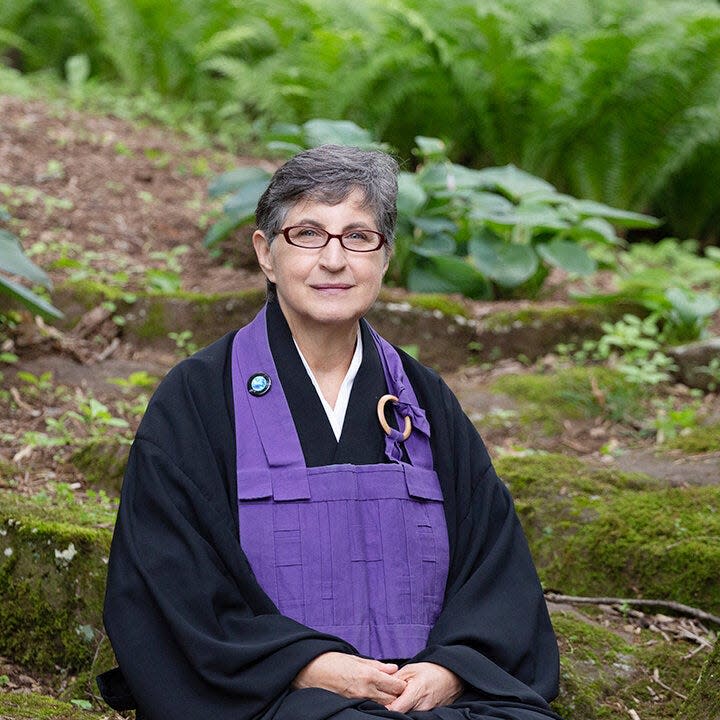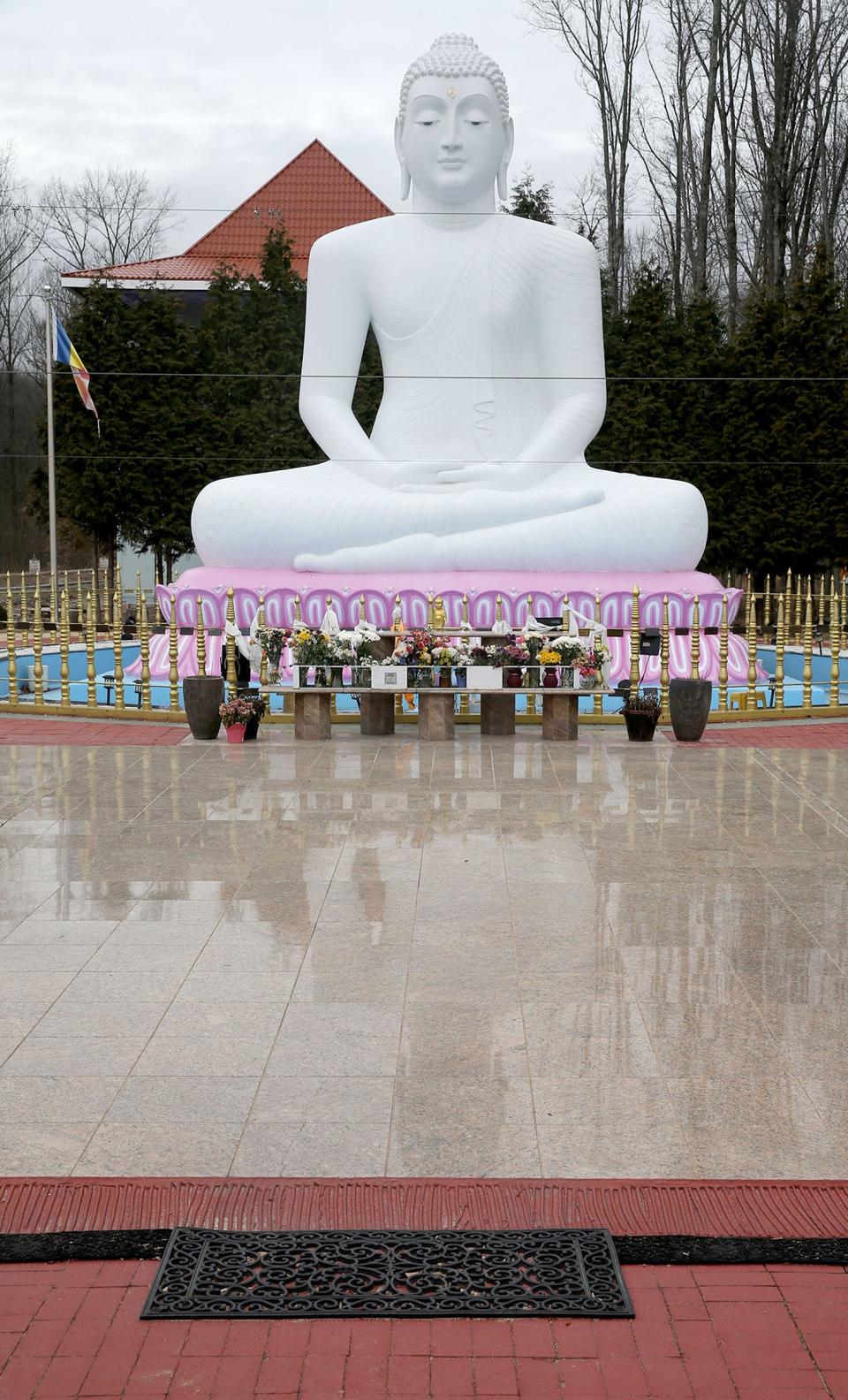NJ's Buddhism boomlet: A quiet faith catches on in a chaotic world
In her late 30s, struggling to balance a busy corporate marketing career with raising a family, Linda Strauss felt herself yearning for more.
She found it in a Zen Buddhist monastery in upstate New York.
"I was trying to find a way to deal with stress, so I went to a meditation retreat," said Strauss, now 66. Over the course of a three-day visit, she was moved by the monks' mindfulness and the mantras, or prayers, that they chanted to prepare for meditation. For the first time in years, she was able to clear her mind.
"I heard some truths that penetrated my consciousness," Strauss recalled. "Something deeply meaningful about interconnection was communicated."

She had grown up in an Upper Saddle River home devoid of religion; her Jewish parents didn't practice their faith, so she wasn't interested in religion, either, she said.
But the retreat piqued her interest in Zen, a school of Buddhism that emphasizes the cultivation of mental clarity through quiet contemplation. Today, she's a novice Buddhist priest with Heart Circle Zen in Teaneck, where she introduces others to the power of meditation, mindfulness and ethics.
Buddhism began more than 2,500 ago in India, but it is finding new adherents today as a growing number of Americans cope with the anxiety and mental health struggles of trying times.
"There's so much imbalance and discord in the world," Strauss said. "That could be why people would be drawn to want to sit quietly for a half-hour."
They don't teach pandemics in seminary: How NJ clergy consoled us in 'draining' times
At Heart Circle Zen, a group of about a dozen members gather daily on Zoom and each Saturday for meditation sessions in person. The center, made up mostly of converts to Buddhism, is one of many that have sprung up over the years in New Jersey.
The Garden State is home to more than 20 Buddhist temples, centers and monasteries in towns including Wyckoff, Englewood, Edison, Cherry Hill, Stanhope and Ridgefield Park. Princeton's New Jersey Buddhist Vihara and Meditation Center features the largest outdoor Buddha statute in the Western Hemisphere, according to officials in Franklin Township, where it sits. They designated the 30-foot-tall sculpture a cultural landmark in 2017.
The 20-year-old temple has about 400 members who are mostly of Sri Lankan origin, said Ven Balangoda Dhammananda, a resident monk. It draws dozens of visitors who come each week for a peaceful stroll on the property while gazing at the white stone Buddha, which seems to glow when it's lighted at night.
"This statute represents the meditative state of the supremely enlightened Lord Buddha. Its expression helps people to achieve their own meditative state," Dhammananda said.

Why Buddhism is growing in the US
Buddhists make up roughly 1% of the adult population in the U.S. About two-thirds of American Buddhists are of Asian descent, according to the Pew Research Center. They are part of a wave of immigrants who have helped spread the faith here since the 1960s, and Buddhism has attracted its share of converts.
"There's a growth of meditation classes, and the temples are starting to be more diversified. You are getting a lot of white Americans intermarrying with people from Southeast Asia and showing up in the temples for rituals and family events," said Justin McDaniel, a University of Pennsylvania professor who studies Buddhism. The popularity of the Dalai Lama, the world-famous leader of the Tibetan school of Buddhism, has also driven interest, he said.
The practice has had a particular appeal in recent years to women, many of them white and middle-aged, McDaniel said. "It tends to be less ritualistic and misogynistic than other religions in America," he said.
Buddhism is based on the teachings of the Buddha, the title given to the Indian spiritual seeker Siddhartha Gautama, after he attained enlightenment more than 2,500 years ago. The Buddha’s best-known teachings describe a path toward freedom from the pain of living, with adherents seeking to achieve a transcendental state known as nirvana.
His teachings spread from India throughout Asia, and then to the U.S. as America removed restrictions on immigrants from Asia in the mid-20th century. Though Buddhism is diverse and includes many different schools of thought, they all share a common belief in living an ethical life dedicated to spiritual development.
The number of Buddhists around the world is expected to increase between 2010 and 2030, rising from 488 million to about 511 million, a 2015 Pew study found. That survey projected that the Buddhist population in North America will grow by more than 2 million to reach nearly 6.1 million people in 2050.
Story continues after gallery
"There's much more interest in Buddhism in America today than there was 20 years ago," said C. Pierce Salguero, a professor of Asian history and health humanities at Penn State University's Abington College.
Mindfulness and meditation have become a big industry in the U.S., particularly since the start of the pandemic, and that has attracted more non-Asian worshippers to Buddhist centers, he said. Still, most temples "are spaces in which Asian Americans are the majority and English is not the major language," said Salguero, the author of 2002's "Buddhish," a guide to Buddhist concepts.
A 'much-needed' sense of peace
The Rev. Eran Junryu Vardi Roshi, a Zen Buddhist priest at Eiryu-ji Zen Center in Wyckoff, agreed that the pandemic attracted new attention. "People had to spend a lot of time at home and reflected on their priorities, leading some to inquire about spiritual practices," he said.
At the pandemic's height, the center established an online presence and drew participants from around the world, he said, estimating that membership grew 15%. Today, the center has in-person and virtual services.
“In a world filled with discrimination, divisiveness and an underlying sense of discontentment, the practice brings people a much-needed sense of equanimity and peace, which leads to unconditional acceptance and love,” he said.
Carolyn Somerville, who grew up in a religious Christian family in Michigan, attended her family's Episcopal Church every Sunday until she was in college.
She joined Soka Gakkai International, a lay Buddhist organization, in 1988, after a friend took her to her first prayer session.
"Although I had accomplished a lot in my life, my friend noticed that I needed more confidence and thought this would help me," said Somerville, who was then 35 years old.
As she entered the meeting at a Brooklyn home, she was struck immediately by the welcoming environment, she said. "It's an uplifting and supportive community," said Somerville, now an associate professor of political science at Hunter College in Manhattan. "It's all about becoming the best you that you can become and respecting the human dignity and worth of every human being."
Soka Gakkai, which has 5,000 members around New Jersey, has since opened the center in Teaneck where Somerville worships, as well as one in Cherry Hill. She credits Buddhist philosophy with making her a happier person.
She said she once had a colleague who was difficult to get along with. "Through the practice of Buddhism, I realized it was because she was suffering," Somerville said. "I chanted for her happiness and saw transformation in my relationship with her. I realized it wasn't up to her, it was up to me.
"Buddhism made a difference in my relationships. It helped me to appreciate others and to see the dignity in each person."
Deena Yellin covers religion for NorthJersey.com. For unlimited access to her work covering how the spiritual intersects with our daily lives, please subscribe or activate your digital account today.
Email: yellin@northjersey.com
Twitter: @deenayellin
This article originally appeared on NorthJersey.com: New Jersey Buddhist temples, Buddhism draw more interest

